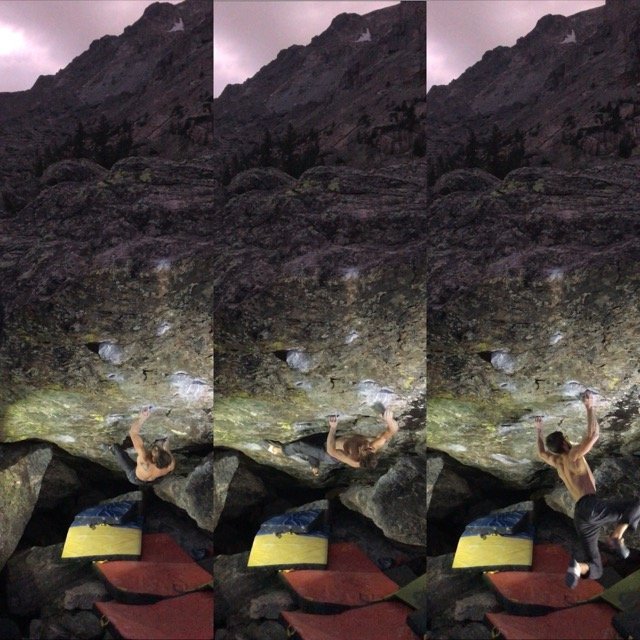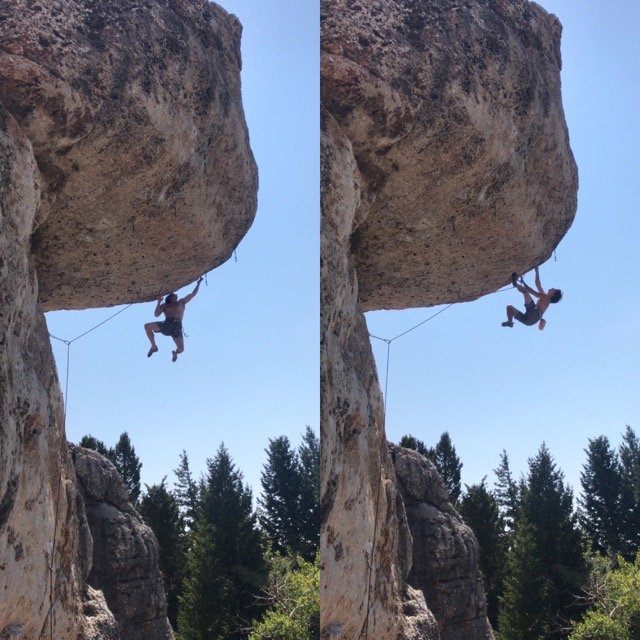They're Mutants, All of Them.
We love being surrounded by the naturally gifted, the people who have been climbing all their lives, and the genetic freaks.

Max Marlowe, at age 15, sending Ultra Perm 13d at the Red River Gorge back when this was still a stand alone route. Photo: Nathan Drolet
If someone has an unfair advantage over us, we don’t have to compete on the same level as them. By placing them on the pedestal of "gifted," we make their accomplishments irrelevant to us. We no longer have to acknowledge the work they do, or the work that we aren’t doing for that matter.
When someone who has been climbing half as long as you is performing as well as you would like to be, do you write them off as being "a natural?" Or, do you take an honest look at yourself and admit that maybe you haven’t been putting in the work necessary to become the climber you want to be?
You don't have to look very hard to find people from all different walks of life and with vastly different physical builds who have managed to climb at a high level. Which is to say that the level of natural talent required to achieve the goals you have right now probably isn't very high.
People love to throw around phrases like,
“Hard work beats talent when talent doesn’t work hard.”
But what if you are the talent that isn't working hard?

Long-time friends Nate and Ravioli Biceps discuss lessons they’ve pulled from video gaming that can help inform our climbing.
I never thought I’d be recommending this, but some of y’all should be putting less effort into becoming technically better climbers.
Do you really have terrible willpower? Or are you surrounded by distractions and obstacles?
Giving artificially low grades to climbs increases their perceived value for our training and development. The more something is mis-graded the more we naturally want to prioritize it.
Discussion around grades can be so polarizing that many of us avoid the topic.
Climbing starts off as this self-feeding cycle that has you wishing you could climb seven days a week. What happens when this cycle stops bringing improvement though?
Use strength to leverage every other aspect of your climbing, not replace them.
If everything you do is a finger workout, then when do your hands get a chance to recover?
There is a common theme between a grilled cheese sandwich and good training advice.
The more accurately we define our problems, the more approachable it will feel to find solutions.
Maybe the most understated way of getting better is to build fallback successes into your plan.
How much time should climbers spend becoming more well rounded vs. improving their strengths?
As cool as assessments and standards are, they can easily leave people settling for “good enough” when they have the potential to do much more.
Being able to quickly recognize familiar sequences is a crucial ingredient to harder climbing.
It’s far more comfortable for us to blame ignorance for our lack of progress than it is to blame our own efforts.
Once you learn the power of good tactics it can be hard to step away from them.
Of all the people that I spoke with this year who were stuck in plateaus, many of them had the same thing in common: they climbed and trained alone.
The belief that you are getting better at climbing is one of the most important ingredients in actually getting better at climbing.
How many times have you gone up a route and felt overwhelmed, only to look back and realize that it’s not as intimidating as it initially seemed?
Most of us go into a training plan or an outdoor season with an expectation, but expecting results can make us brittle when problems arise.
Whenever there is a training article online or some tidbit of knowledge on social media, it’s important that you consider the context.
At a certain stage in climbing, the hand and foot beta you use stops being the deciding factor in whether or not you are successful.
The intermediate climber’s problem with perception starts to arise when they can’t recall all of the solutions they have attempted during the problem solving process.






























Inspiration is intoxicating, but often fades as quickly as it shows up.